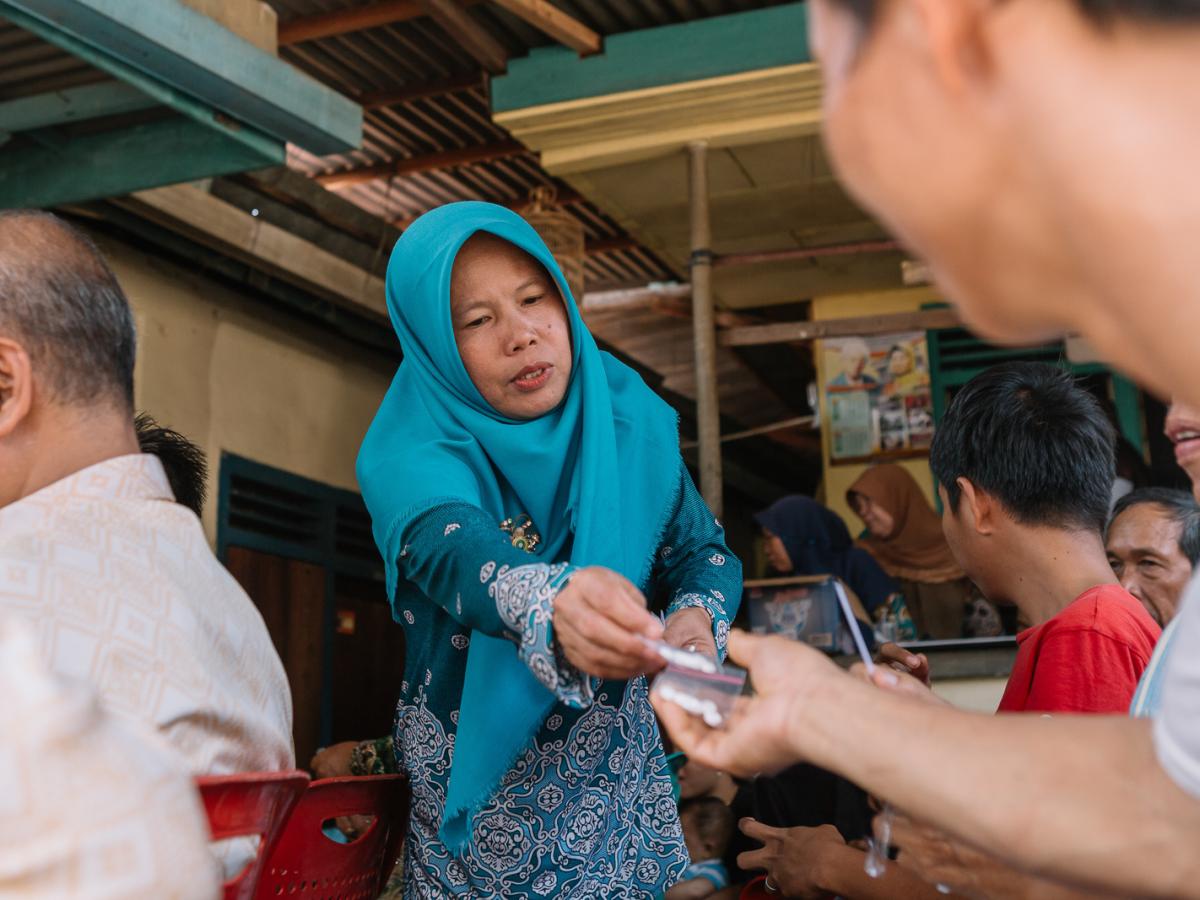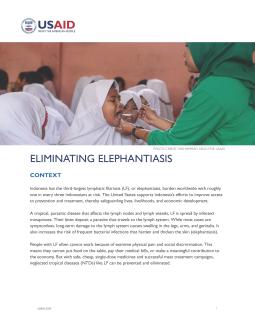Context
Indonesia has the third-largest lymphatic filariasis (LF), or elephantiasis, burden worldwide with roughly one in every three Indonesians at risk. The United States supports Indonesia’s efforts to improve access to prevention and treatment, thereby safeguarding lives, livelihoods, and economic development.
A tropical, parasitic disease that affects the lymph nodes and lymph vessels, LF is spread by infected mosquitoes. Their bites deposit a parasite that travels to the lymph system. While most cases are symptomless, long-term damage to the lymph system causes swelling in the legs, arms, and genitalia. It also increases the risk of frequent bacterial infections that harden and thicken the skin (elephantiasis).
People with LF often cannot work because of extreme physical pain and social discrimination. This means they cannot put food on the table, pay their medical bills, or make a meaningful contribution to the economy. But with safe, cheap, single-dose medicines and successful mass treatment campaigns, neglected tropical diseases (NTDs) like LF can be prevented and eliminated.
Act to End NTDs | East
In Indonesia, the United States Agency for International Development (USAID) “Act to End NTDs | East” (USAID Act | East) program supports the Government of Indonesia’s ability to identify, treat, and eliminate LF. At the national level, USAID Act | East supports Indonesia’s National NTD Program to advance evidence-based strategy development, planning, coordination, and surveillance.
At the district level, USAID Act | East supports the Government of Indonesia to implement its NTD control and elimination programs (including mass preventative treatment campaigns and disease mapping) as well as to track progress toward eliminating LF as a public health problem. With key partners such as the World Health Organization, international pharmaceutical companies, and others, USAID Act | East treats and educates communities across the country. The program also helps district governments assess whether they have achieved their mass drug administration goals and, if not, to determine the next steps. Finally, USAID Act | East trains provincial and district staff and regional labs on survey implementation and supervision. All of these activities in Indonesia contribute to reducing the national and global burden of LF.
Results
Since 2011, USAID has been supporting the Government of Indonesia to achieve its goals for NTD control and elimination. USAID Act | East builds on previous USAID efforts, which have supported over 145.4 million treatments for LF. Through USAID’s support, Indonesia first began reaching all districts in need of LF treatment in 2017. To-date, 117 out of the 236 endemic districts in the country no longer require mass treatment. USAID support has ensured that 85.5 million people are living in communities no longer requiring LF treatment, representing a 72.6-percent decrease in the number of people at risk of LF in Indonesia. USAID Act | East has also supported more than 178 surveillance surveys to track and verify elimination of transmission.
Contact
Tim Meinke, USAID at tmeinke@usaid.gov
Jim Johnson, RTI at jcjohnson@rti.org


